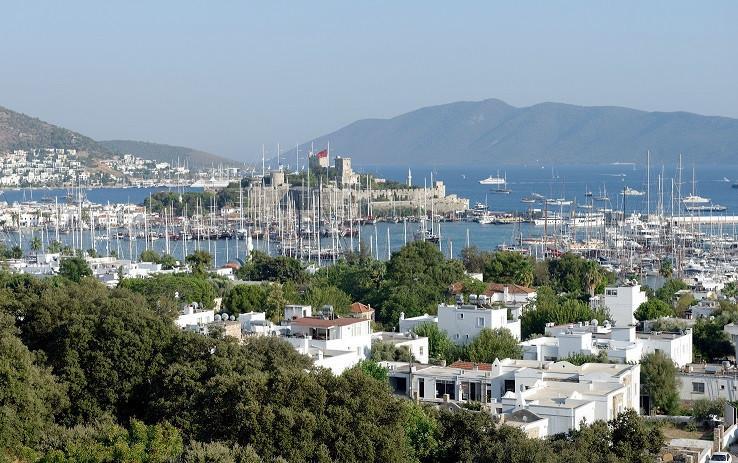
Tourism in Turkey will make a major comeback this summer as Germans and Russians flock back to its beaches, but accommodation prices will take longer to recover from a couple of tough years, hoteliers say.
Bomb attacks, a diplomatic crisis with Russia and a failed military coup led to a sharp drop in foreign visitors in 2015 and 2016, forcing hotels to cut their room rates.
At the ITB travel trade fair in Berlin, hoteliers reported rising bookings for the peak holiday season, although profitability was still lagging.
“We have to get prices up a bit, but guests want their vacations to be cheap,” said Mehmet Sürücüoğlu, manager of the Palm World Resort & Spa in Side on Turkey’s southern coast.
Sürücüoğlu told Reuters he needs to charge at least 26 euros ($32.2) per night for each holidaymaker staying in his roughly 200 rooms to be profitable.
This year, his average prices are likely be around 30 percent above the year-earlier level, but for the summer season they still come to only around 25 euros a night.
Selahittin Sarıgül, product manager at the 585-room Club Nena hotel in Manavgat, also on the southern coast, reported bookings were at least 50 percent higher than a year ago but prices were still down.
“It will take a few years to get prices back to where they were before,” he said.
Some hotels did not survive the downturn, with data from the Ministry of Culture and Tourism showing the number had dropped to fewer than 2,800 in 2017 from 3,300 a year earlier. Thanks to the lower prices, occupancy rates edged up to 60 percent last year from 53 in 2016.
The number of foreign visitors was up 28 percent at 32.4 million in 2017 and is expected to rise further to more than 38 million this year.
Tourism Minister Numan Kurtulmuş said many hotels had been too hasty in slashing their prices, and it would take until 2019 for room rates to return to normal levels.
In the meantime the government will maintain incentives offering charter airlines up to $9,000 per planeload of tourists they bring to Turkey until at least the end of 2018. It has also taken measures to make it easier for hotels to renew land leases.
Palm World’s Sürücüoğlu said the government could do more to help hotels, such as facilitate cheap loans or lower the prohibitively high tax on alcohol.
Kurtulmus said his ministry had made a proposal to the Ministry of Finance regarding the alcohol tax, without elaborating.
By 2023, Turkey aims to attract 50 million holidaymakers a year and earn $50 billion in tourism revenues by diversifying beyond beach vacations to wellness and sports holidays, as well as luring more holidaymakers from Asian countries including China, India and South Korea.